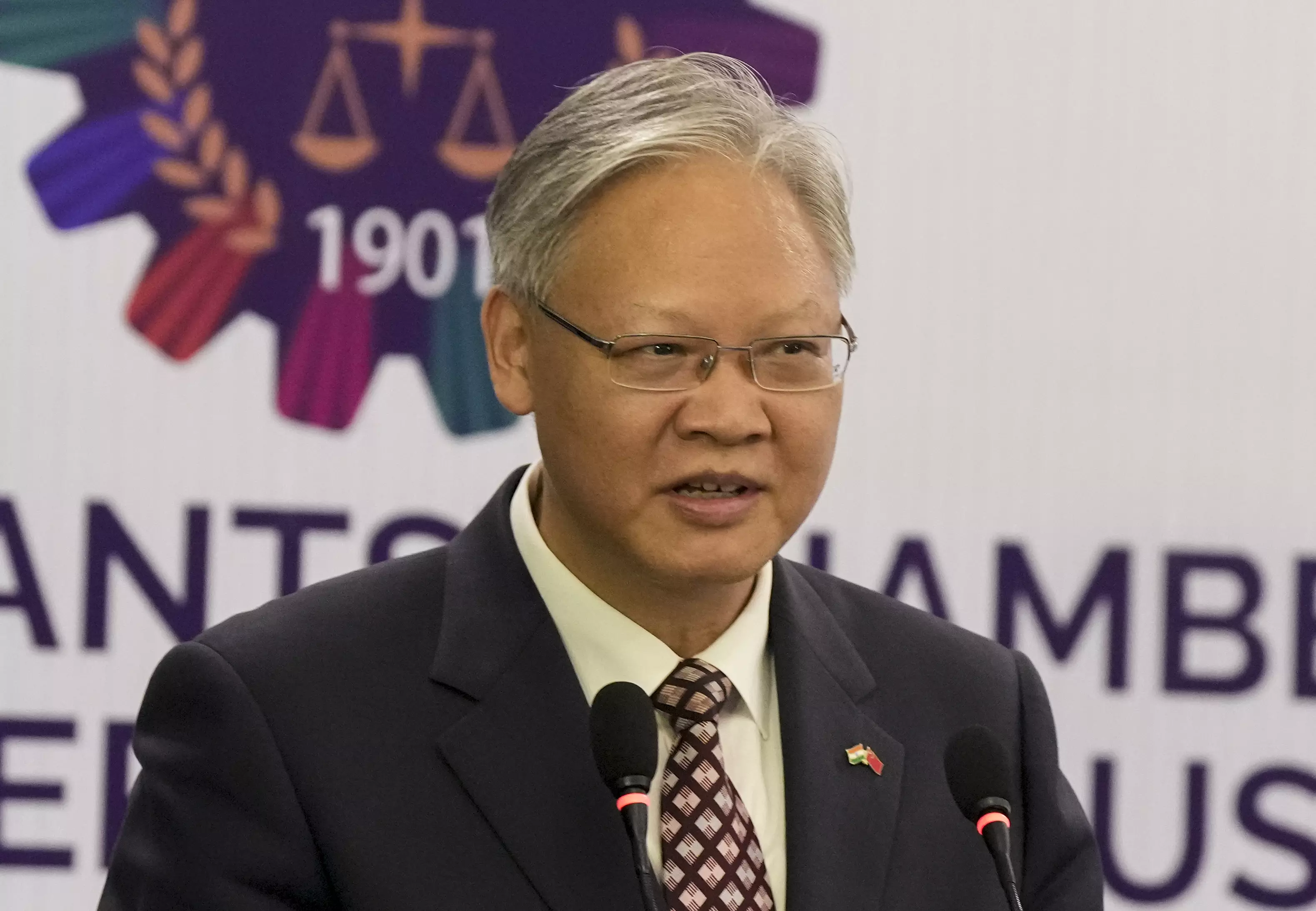
India, China complete disengagement in eastern Ladakh; troops to exchange sweets on Diwali
Earlier, Chinese foreign ministery said India and China troops are disengaging in eastern Ladakh in an 'orderly' manner; now with troops disengagement complete, patrolling will commence

Indian and Chinese troops have completed disengagement at two friction points at Demchok and Depsang Plains in eastern Ladakh and patrolling is set to commence soon at these points, Indian army sources said on Wednesday.
Further, the army said that exchange of sweets between the two sides will take place on Diwali.
Earlier, the Chinese foreign ministry had said that India and China troops are disengaging in eastern Ladakh in an 'orderly' manner.
Chinese ambassador comments
Chinese Ambassador to India Xu Feihong, who attended an event in Kolkata, in response to a question on the troops disengagement said, "I hope that under the guidance of this consensus, relations will be moving forward smoothly in the future and not be restricted and interrupted by specific disagreements between the two sides."
"The most important thing is how to handle the differences," he added.
The process follows the agreement firmed up between the two countries on patrolling and disengagement of troops along the LAC in eastern Ladakh, a major breakthrough to end the over four-year standoff.
The move marks a significant development in the pursuit of reduced tension along the Line of Actual Control (LAC) in eastern Ladakh since the fierce clash in the Galwan Valley in June 2020 that marked the most serious military conflict between the two sides in decades.
The ties between the two Asian giants had nosedived following the clash.
Disengagement in orderly manner
Earlier, China said the Chinese and Indian militaries are implementing the "resolutions" concerning the disengagement in eastern Ladakh along the Line of Actual Control (LAC) in an "orderly way".
"China and India recently reached resolutions on relevant issues concerning the border," Chinese foreign ministry spokesman Lin Jian told a media briefing in Beijing, while replying to a question on the progress of the disengagement.
"At the moment, the Chinese and Indian frontier troops are implementing the resolutions in an orderly way," he said, without providing further details.
He declined to answer a question whether there is a deadline for disengagement.
The agreement
Foreign Secretary Vikram Misri on October 21 had said in New Delhi that the agreement was finalised following negotiations over the past several weeks and that it would lead to a resolution of the issues that arose in 2020.
A day later, Lin, while confirming the agreement, told a media briefing that over a recent period of time, China and India have reached resolutions on issues concerning the border area following close communication through diplomatic and military channels.
China commends the progress made and will continue working with India for the sound implementation of these resolutions, he said.
Since the announcement ending over four years of military standoff at eastern Ladakh, China released fewer details except acknowledging that the process of disengagement is going on smoothly.
Injecting 'positive factor'
On October 23, Prime Minister Narendra Modi and Chinese President Xi Jinping endorsed the agreement on patrolling and disengagement along the LAC in eastern Ladakh during their bilateral meeting on the sidelines of the BRICS Summit in Kazan in Russia.
A lengthy editorial in the state-run Global Times, a sister publication of the China's ruling Communist Party mouthpiece - the People's Daily, said the India-China agreement has drawn significant attention from the international community, highlighting its important practical implications for bringing bilateral relations back to the track of stable development at an early date.
It also "undoubtedly" injected a new positive factor into maintaining regional and world stability, said the editorial published on Tuesday.
"Hopefully both sides will make good use of the opportunities provided by the current solution, continue to implement the consensus reached at various levels, and work toward a new normal in the border situation, advancing the normalization of bilateral relations," it said.
"Only in this way can we be responsible for the well-being of our two peoples, as well as for the stability and development of the world," it added.
(With inputs from agencies)

